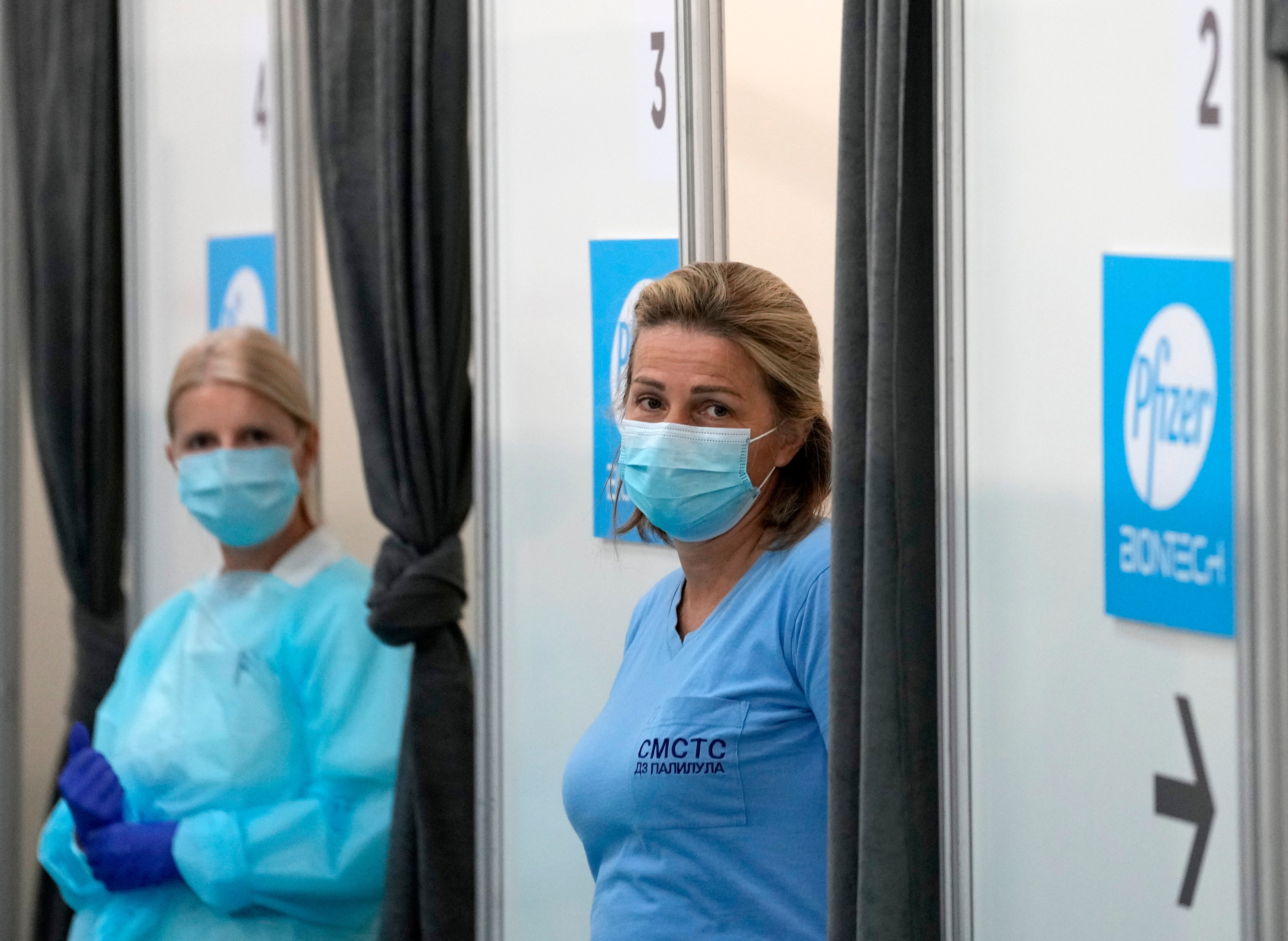I’m a medical doctor but I oppose Covid vaccine mandates like the one that affected Kyrie Irving. This is why
I really tried to convince a 75-year-old patient to be vaccinated before surgery, to no avail. His daughters wanted me to force his hand — but there’s a good reason why I never would

Your support helps us to tell the story
From reproductive rights to climate change to Big Tech, The Independent is on the ground when the story is developing. Whether it's investigating the financials of Elon Musk's pro-Trump PAC or producing our latest documentary, 'The A Word', which shines a light on the American women fighting for reproductive rights, we know how important it is to parse out the facts from the messaging.
At such a critical moment in US history, we need reporters on the ground. Your donation allows us to keep sending journalists to speak to both sides of the story.
The Independent is trusted by Americans across the entire political spectrum. And unlike many other quality news outlets, we choose not to lock Americans out of our reporting and analysis with paywalls. We believe quality journalism should be available to everyone, paid for by those who can afford it.
Your support makes all the difference.Basketball player KyrieIrving made the news recently when he was not allowed to play in New York because of the state’s vaccine mandate.
Like most medical doctors, I am obviously pro-vaccine. I promote its use, its effectiveness and the benefits it has brought to humanity; for instance, the eradication of smallpox (not a small feat). I am not, however, in favor of vaccine mandates for the general public. I am also not in favor of the public shaming of people who chose not to get vaccinated: I don’t think it is effective and I also believe it is absolutely unethical to taunt and harass people who have different views about what goes into their body.
One of the maxims of medicine is “primun non nocere”, a phrase attributed to Hippocrates (the father of medicine). It means that any medical act must be accompanied by a prior reflection on whether the benefit of the treatment (in this case a vaccine) is greater than the damage it can cause. For all the skeptics out there, I am not about to say that vaccines do harm and should be carefully considered. Quite the opposite: the vaccines we have available today, including the Covid vaccines, are completely beneficial and the damage is insignificant. Nevertheless, in medicine, we are taught to have respect for the will and freedom of the patient. That means we must also respect the decisions that they make about their body, however unpopular they may be.
An example. I am a urologist, and recently treated a patient who was 75 years old, who needed to be hospitalized before and after surgery. There was a risk that he could acquire Covid during that time because he was not vaccinated. I explained the reasons why he should get vaccinated, but he continued to refuse. His daughters, who were in consultation with him, wanted to force him to do it. I had to explain that neither they, nor I, could require that he get vaccinated, nor submit him to any other medical treatment against his will. As his doctor, I am the guarantor of his healthcare decisions.
During the pandemic, I have not tired of repeating to my patients over and over again about how much better off they would be if they got the vaccine. I have also publicly written about itsbenefits (direct and tangential), and the drawbacks of not getting vaccinated. Having been on the front line in the fight against Covid, I have personally witnessed, and grieved, the consequences of not getting vaccinated. I watched people my age — doctors my age — die alone and on a ventilator before there was a vaccine available.
Yet we must be consistent. Forcing someone to be vaccinated or applying coercive measures to do so is equivalent to wanting to sterilize someone against their will, while arguing that they are unable to decide for themselves. All this boils down to the fundamental right to freely decide one’s own care, which is a fundamental human right.
My recommendation for anyone struggling with a loved one who won’t get the jab? Be empathetic, listen to their concerns, and base your arguments on science. However, if they persist in their refusal, it is their right to do so. And it is my job, as a doctor, to guarantee that right.
Dr Marcos Del Rosario-Santiago is a urologist in the Mexican Navy, and a writer on medical science and ethics
Join our commenting forum
Join thought-provoking conversations, follow other Independent readers and see their replies
Comments